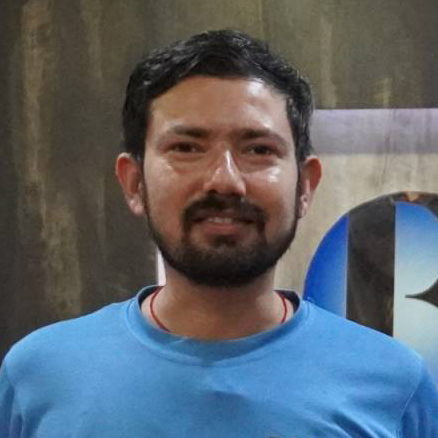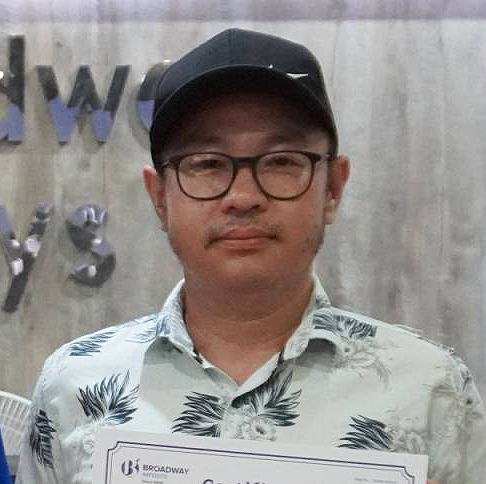
DevOps Training In Nepal
Course Overview
Broadway Infosys offers DevOps Course in which you will be instructed about Software Development and IT operations collaboration. You will be instructed about how automation is accomplished, how infrastructure is managed, and how applications can be deployed in an efficient way. You will be learning useful tools and practices like Git, Jenkins, Docker, Kubernetes, Ansible, and CI/CD.
You will also be learning integration with AWS, Azure, etc. The project-based, hands-on training is conducted through trained instructors. In addition to technical training, you will also be provided with individual mentoring, on-going feedback, and career counseling in order to move ahead in the tech sector. On completion of the course, you will be sure of becoming an efficient DevOps engineer and will be capable of working on live projects.
Skills You'll Learn
- CI/CD Pipelines: You’ll build Continuous Integration and Continuous Deployment pipelines. This involves writing code, testing it, and automatically pushing it to production.
- Cloud Integration: You’ll see how DevOps works with AWS, Azure, or Google Cloud for deploying apps and managing infrastructure.
- Containerization with Docker: You’ll work with Docker to build, run, and manage containers.
Here is what our students say
Stay in touch with us
- DevOps Practices and Principles
- What is CI/CD?
- Fundamental concepts and Lifecycle
- Current Practices
- Uses of tools in DevOps cycle
- Introduction of the course with DevOps Roadmap
- Introduction to Linux Operating System
- Linux Distributions
- Comparision of Linux / Unix / Windows Operating systems
- Operating System Concepts
- I/O Management Apache
- File System
- USers and Groups
- File Permission and ownership
- Memory / Storage
- Processes
- POSIX Standard
- Systems and Services
- Getting Acquainted with Linux Terminal
- Introduction to Linux Shell
- Sh and Bash
- Linux Commands
- Text Editor – Vi / Vim / Nano
- Manpages
- Environment Variables / Variable Scopes
- Shell Scripts - Basics of Bash Scripting
- Terminal Multiplexing – Screen and tmux
- Learning to live inside the shell
- Package Management
- Overview of Linux Applications and Dependencies
- Debian Packages (.deb), RHEL Packages (.rpm)
- Debian Package Manager (apt, apt-get, snap)
- RHEL Package Manager (yum, dnf)
- Package Repositories – apt repositories, yum repositories
- Scheduling Scripts / Tasks – crontab, cronjobs, cron scheduling
- Running Application Daemons in Attached / Detached Modes
- Basics of Remote Access – SSH, SFTP
- Secure Copy (scp), Rsync
- Archiving
- Monitoring Application Logs
- Understanding Network and IP
- Ports
- Port Forwarding (Basics of Socat), Port Binding
- Firewall – UFW, Firewalld
- Introduction to Networking Protocols
- Hostnames, Domain Names
- DNS
- Ingress / Egress
- Swtiching and Routing
- Network Interface, Network Adapter
- Subnets, Netmask, Route, Gateway, Broadcast
- Network Address Translation (NAT)
- Virtual Networking
- Virtualbox Network Concepts (NAT Network, Host-Only Network, Bridge Network)
- Hosts file, Resolv File
- Virtual Private Network (VPN)
- Network Commands
- Introduction to Encryption
- Symmetric and Asymmetric Encryption
- Overview of Hashing and Salting – SHA, Argon
- Base64 / Base32 Encoding and Decoding
- Public Key Cryptography with RSA
- AES Encryption Standard
- Http vs Https
- SSL Certificates
- SSL Certificate Types and Modes
- SSL termination with Self Signed Wildcard SSL
- Passwordless SSH
- Intro to Digital Signatures
- Getting a Free SSL Certificate with Let’s Encrypt
- Introduction to Source Control Management with Git.
- Git Operations
- Git Clone
- Review Changes
- Add Changes
- Commit
- Remote SCM – Intro to GitHub / GitLab
- Internal Remote SCM with GitLab
- Git Push / Pull
- Gitignore
- Install Public Key on Remote Git Repository.
- Git Branches
- Stash
- Solve Merge Conflicts
- Pull Requests
- Commit Hashes
- Tagging
- Readme File – Markdown Basics
- Overview of GitHub Actions / GitLab CI
- Basics of RDBMS.
- MySQL Introduction
- Installing and Configuring a MySQL server
- Creating, Updating, Deleting Users in MySQL
- Basic RDBMS Querying
- Overview of Data Definition Language (DDL) Scripts.
- Database Dumps, Backup and restore
- What is Message Broker?
- Introduction to Message Queues
- RabbitMQ and AMQP Protocol
- Message Producers
- Message Consumers
- RabbitMQ Topics
- RabbitMQ Exchanges
- RabbitMQ Bindings
- RabbitMQ Administration
- Introduction to Applications
- Java Applications
- Building and Packaging Java Apps
- Maven and Gradle Basics
- Drivers
- Apache Tomcat Server
- NodeJS Applications
- Node Package Manager (NPM)
- Node Modules
- Python Applications
- Python – PIP
- Python Virtual Environments
- Apache2 and Nginx Servers
- Http Request Header Basics
- Conceptual overview of Single Sign On (SSO) – Sessions, TGT, Cookies
- Reverse Proxy and Basic Load Balancing with Nginx
- Introduction to Virtualization Technology
- Hypervisors – Type 1 and Type 2 Hypervisors
- Introduction to Virtualbox
- Provisioning a Virtual Machine with Virtualbox from scratch.
- Using Pre-build VM images.
- Headless VMs.
- Virtualbox Connectivity
- Virtualbox Networking
- Provisioning Multiple VMs
- Backup and Restoration of VMs
- Introduction to Infrastructure as Code (IaC)
- Installing Vagrant
- Vagrant IP, RAM, CPU
- VagrantFile
- Vagrant CLI Commands
- Vagrant Provisioning
- Vagrant Sync Directories
- Multi VM Vagrantfile
- Automate Application Dependencies with Vagrant
- Introduction to Containers
- Containers vs Virtual Machines
- Application Architectures: Monolithic vs Microservices
- What is Docker?
- Installing Docker
- Basic Docker Commands
- Dockerfile
- Docker Images
- Docker Run
- Docker Build
- CMD vs Entrypoint
- Docker Engine
- Docker Storage
- Docker Networking
- Container Registry – DockerHub
- Local Container Registry with Harbor - Intro
- Docker Image Layers
- Docker Commit, Save, Load
- Docker Base Images
- Docker Image Optimization
- How to Dockerize any Application?
- 12 Factor Apps Concept
- Docker Compose
- Introduction to Jenkins
- CI / CD demystified
- Installing Jenkins
- Jenkins CLI
- Jenkins Plugins and Integrations
- Jenkins Administration
- JenkinsFile
- Jenkins Pipelines
- Multistage Pipelines with Jenkins
- CI / CD and Full Pipeline Deployment with Jenkins and Docker
- Introduction to Container Orchestration
- Kubernetes Architecture
- Kubernetes Basic Setup – Minikube
- PODs
- YAML
- Replication Controllers
- Replicasets
- Deployments
- Update and Rollbacks
- Kubernetes Networking
- Services – NodePort, ClusterIP, Load Balancer
- Ingress
- Config Map and Secrets
- Kubectl CLI
- Jenkins and Kubernetes Integration
- Introduction to Ansible
- Setup Infra
- Inventory
- Playbooks
- Modules
- Variables
- Conditionals
- Loops
- Roles
- Handlers
- Introduction to AWS and AWS Console
- VPC and Networking Basics
- Working with Subnets, NATs, and IGWs.
- IAM Roles and Policies
- Introduction to AWS Elastic Compute (EC2)
- Security Groups
- EBS (Storage) and S3
- Auto Scaling Groups & Load Balancing
- Serverless Technologies – AWS Lambda
- AWS RDS
- Cloud Infrastructure Automation with HashiCorp Terraform


